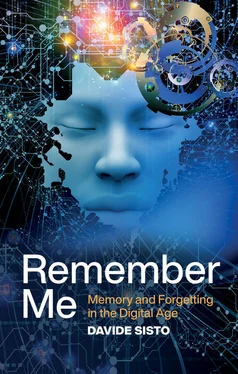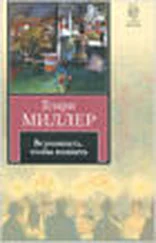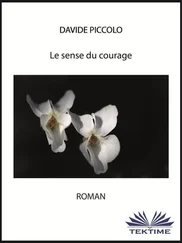107 102
108 103
109 104
110 105
111 106
112 107
113 108
114 109
115 110
116 111
117 112
118 113
119 114
120 115
121 116
122 117
123 118
124 119
125 120
126 121
127 122
128 123
129 124
130 125
131 138
132 139
133 140
134 141
135 142
136 143
137 144
138 145
139 146
140 147
141 148
142 149
143 150
144 151
145 152
146 153
147 154
148 155
149 156
For Michele Barbotto,
in memory of the Potentissima, of Bar Verde
and everything that death has left here
Remember Me
Memory and Forgetting in the Digital Age
Davide Sisto
Translated by Alice Kilgarriff
polity
Originally published in Italian as Ricordati di me: La rivoluzione digitale tra memoria e oblio © 2020 Bollati Boringhieri editore, Torino
This English edition © Polity Press, 2021
The translation of this work has been funded by SEPS Segretariato Europeo per le Pubblicazioni Scientifiche

Via Val d’Aposa 7 – 40123 Bologna – Italy
seps@seps.it– www.seps.it
Polity Press
65 Bridge Street
Cambridge CB2 1UR, UK
Polity Press
101 Station Landing
Suite 300
Medford, MA 02155, USA
All rights reserved. Except for the quotation of short passages for the purpose of criticism and review, no part of this publication may be reproduced, stored in a retrieval system or transmitted, in any form or by any means, electronic, mechanical, photocopying, recording or otherwise, without the prior permission of the publisher.
ISBN-13: 978-1-5095-4503-2 (hardback)
ISBN-13: 978-1-5095-4504-9 (paperback)
A catalogue record for this book is available from the British Library.
by Fakenham Prepress Solutions, Fakenham, Norfolk NR21 8NL
The publisher has used its best endeavours to ensure that the URLs for external websites referred to in this book are correct and active at the time of going to press. However, the publisher has no responsibility for the websites and can make no guarantee that a site will remain live or that the content is or will remain appropriate.
Every effort has been made to trace all copyright holders, but if any have been overlooked the publisher will be pleased to include any necessary credits in any subsequent reprint or edition.
For further information on Polity, visit our website: politybooks.com
Writing a book on memory and memories has, for me, been a titanic endeavour. I do not have an easy relationship with ‘looking back’, as it always leaves me with a melancholy sense of loss. This forces upon me the need always to look ahead and to recognize the importance of dying and being forgotten. However, as incoherence tends to win out over coherence, looking back is the central issue of this book which, having been written in order to be published and read, reveals the author’s implicit desire to leave his mark.
I would like, first and foremost, to offer my most heartfelt thanks to Roberto Gilodi, Michele Luzzatto, Flavia Abbinante, Elena Cassarotto and the publishing house Bollati Boringhieri for having given me the opportunity to write this book.
I would also like to thank all of those with whom I share, each and every day, the objective of bringing the discourse on death back into the public space in order to limit the negative effects of its social and cultural repression: Marina Sozzi and the blog Si può dire morte ; Ines Testoni and the Masters in Death Studies and the End of Life at the University of Padua; Ana Cristina Vargas, Gisella Gramaglia and Fondazione Ariodante Fabretti in Turin; Maria Angela Gelati and Il Rumore del Lutto in Parma; Massimiliano Cruciani and Zero K in Carpi; Laura Campanello and the Death Cafè in Merate; Alice Spiga and the SO.CREM. in Bologna.
I would also like to thank everyone who has shown interest and enthusiasm for Online Afterlives , giving me the possibility of discussing the book’s themes throughout Italy. I will cherish the memories of moving experiences I have had from North to South over the last year and a half. I am truly grateful to those splendid individuals whom I have had the opportunity to meet from time to time.
I would also like to thank Ade Zeno, friend and companion in never-ending thanatological adventures; Valentino Farina, in memory of past times; and Dedalo Bosio, the Splunge cited in this book. Finally, I would like to thank Lorenza Castella, because she doesn’t read my books and therefore will never know she has been thanked.
The final and most important mentions go to Nello and Silvana, and to my irreplaceable Roberta, so involved in this book (poor her!) that she dreamed about it at night. May many pasticcini al pistacchio atone for my sins.
Introduction Social Networks and Looking Back
The Past is Just a Story We Tell Our Followers
The past is just a story we tell ourselves. These are the words Samantha, the OS1 operating system and the protagonist in Spike Jonze’s film Her , uses to console Theodore Twombly, the man who constantly imagines he is talking to his ex-wife, Catherine. He picks up on old, never forgotten conversations and uses hindsight to construct justifications he was unable to give when the woman, before leaving him, pointed out his repeated failings. The past does not really exist. This point is made unremittingly by Jonathan Gottschall in his book The Storytelling Animal : though it may have actually happened, the way in which we present it makes it seem like nothing more than ‘a mental simulation’. Our memories are not perfect recordings of what actually happened but reconstructions, and most of their details are unreliable. 1This is probably what pushed Desmond Morris to take such a radical step following the death of the woman with whom he had lived for sixty-six years, getting rid of all the physical memories that made his grief unbearable. As Aleida Assmann observes, ‘By erasing a mark, the survival of a person or an event in the memory of those who come after becomes as impossible as the discovery of a crime.’ 2Therefore, the British zoologist asked himself, why not eliminate all traces? The thousands of books, paintings and antiques bought with his wife over the course of more than half a century of marriage, those simple utensils (a teacup, for example) that symbolically contain the most normal daily gestures of a shared life, along with photographs, and even a whole house. The house represents ‘a deposit, that exists both physically and within us, of memories that are still shared’, it is ‘the final bulwark of a time painstakingly removed […] from the unrelenting progression of loss, from the painful dissipation of living worlds’. 3Morris follows this rule: if you leave me, I’ll erase you.
Theodore Twombly in cinematic fiction, and Desmond Morris in real life, share the same fate: the end of the world in its totality, to borrow a famous expression from Jacques Derrida. Both the end of a sentimental relationship and the death of a loved one suddenly erase the physical presence to which we are bound, along with everything that had been shared both materially and emotionally up until that moment. Twombly and Morris suddenly find themselves at the starting point of their own lives, as if every experience up to that moment had been erased. The only thing posing any opposition to the end of the world in its totality is the spectral presence of the person who is no longer physically there, the transparent copy that proliferates in material and mental memories, remaining alive and kicking in their scattered remains. That copy, which according to Umberto Eco is relied upon by every human being who, aware of both their physical (‘I’m going to die sooner or later’) and mental weakness (‘I’m sorry that I’m going to have to die’), finds proof of that soul’s survival in the memory that remains of it. 4In other words, both the death of a loved one and the end of a loving relationship determine the passage from identity to the images of identity that transform the absent into a collector’s item, the bulwark against the memory’s fragility at which one can direct their own enduring regrets.
Читать дальше













